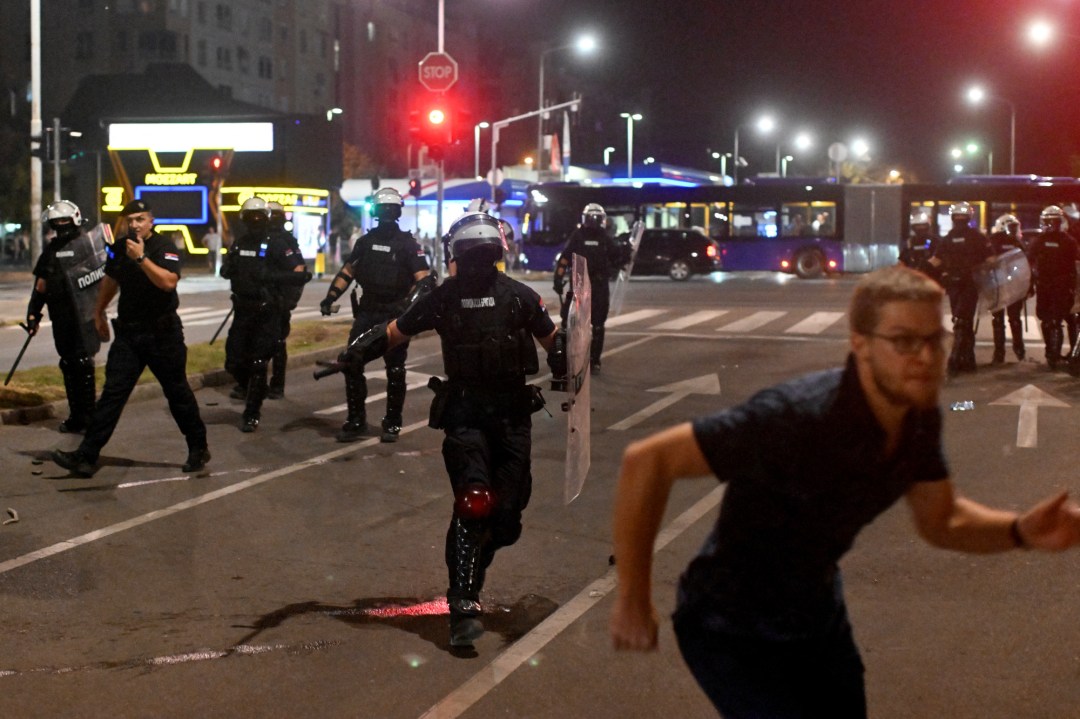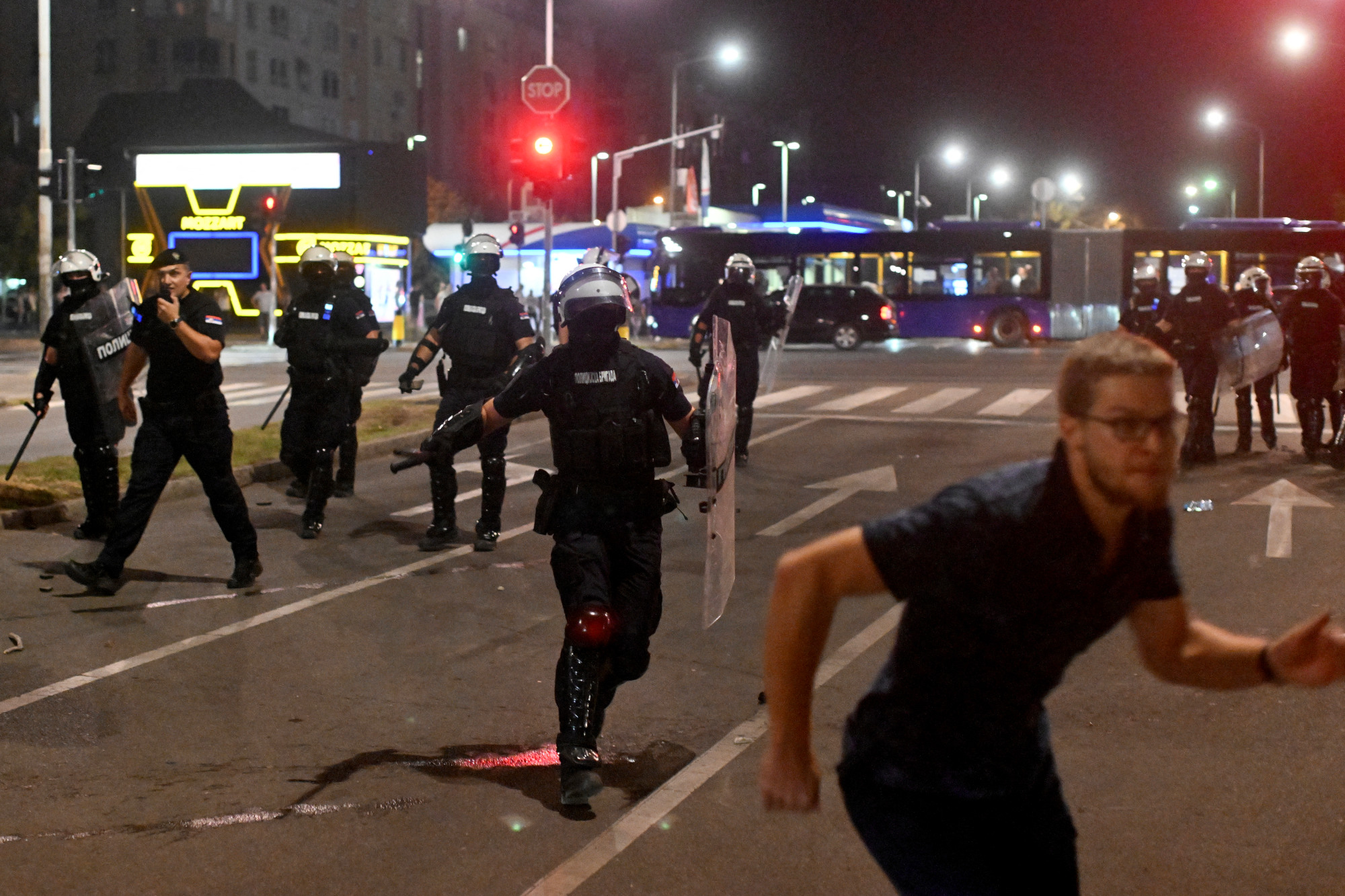Belgrade
There are two kinds of Balkan crises: the ones that actually happen, and the ones that feel inevitable until they fizzle out. Serbia’s current descent into street violence and political dysfunction is somewhere in between. Whether it ends in fresh elections, implosion, or continued chaos depends on one man.
Sit-ins and marches have given way to nightly clashes between anti-government protesters on one side and pro-regime thugs and riot police on the other.
In the past week, long-running student protests against the government of President Aleksandar Vucic have turned into something far less orderly. Sit-ins and marches have given way to nightly clashes between anti-government protesters on one side and pro-regime thugs and riot police on the other.
The offices of the ruling Serbian Progressive party (SNS) have turned into urban warzones, guarded by burly men wielding sticks and pyrotechnics. Belgrade hasn’t felt this volatile since 2000, when former ruler Slobodan Milosevic was overthrown. At least now there are fewer tanks and more iPhones.
The protests were initially sparked last year by the collapse of a concrete canopy outside Novi Sad railway station. The student-led protests then gained momentum due to wider disaffection with Vucic’s Erdogan-style rule. Peaceful marches have since given way to violence. Youths are coming out on the streets looking for a fight after watching videos of police beating men half to death in the streets.
In Valjevo, armed police were filmed beating a man lying on the ground. In Novi Sad, 17 young men – one of whom appeared to be a minor – were filmed kneeling against a wall of a police gymnasium, hands bound behind their backs.
While protesters are handcuffed and humiliated, the government has been forgiving toward its own. Individuals who rammed cars into protesters or beat students with baseball bats have received presidential pardons.
The government does not seem interested in calming tensions. The president’s brother was spotted leading a column of people through the capital on Wednesday night toward a pro-government encampment, shouting about Ustaše (Croatian fascists).
By describing the protesters as Ustaše and terrorists, while encouraging violence from its own supporters, the regime appears to be baiting the opposition into overreacting. If enough young people throw stones, Vucic can claim he’s the last line between Serbia and chaos.
It’s a dangerous game. Party loyalists acting like football hooligans on amphetamines risks alienating the wider public. Vucic, who likes to pose as Serbia’s great stabiliser, now seems to be a source of instability.
Historically, the president has called only elections when he’s sure of winning. Recent polls show his once-dominant support slipping. Even the usual cocktail of a pro-regime propaganda by state media, character assassinations against opponents of the government and electoral trickery may not be enough to guarantee a win.
Elections are unlikely before Vucic feels assured of victory – which may not be until Expo 2027, an international event in Belgrade that he’s staked his legacy on. Any disruption before then would be inconvenient.
But time may not be on his side. Serbia’s opposition is currently fragmented and leaderless – it’s a mix of students, professors and disillusioned citizens – but they’ve mobilised hundreds of thousands to the streets and have pledged to unite behind a ‘student list’ by the time of the next election. Voters might opt for the unknown instead of more of the same.
Vucic claims he won’t seek re-election when his presidential term comes to an end. Perhaps he’ll retire and finish writing his forthcoming book on colour revolutions. More likely, he’ll return as prime minister, appoint a compliant president and rule from behind the scenes.
Is the regime on the brink of collapse? Not yet. Is Serbia headed for major political unrest? Maybe – but ask again in a few months. The government is asking for escalation, and some citizens are increasingly willing to accept the invitation.
The longer Vucic tolerates violence while portraying himself as its remedy, the more dangerous his game becomes. Eventually, voters may tire of being extras in a state-sponsored psychodrama. And when that happens, even Serbia’s most seasoned political tactician could face the one thing he’s long avoided: real democratic opposition.








Comments